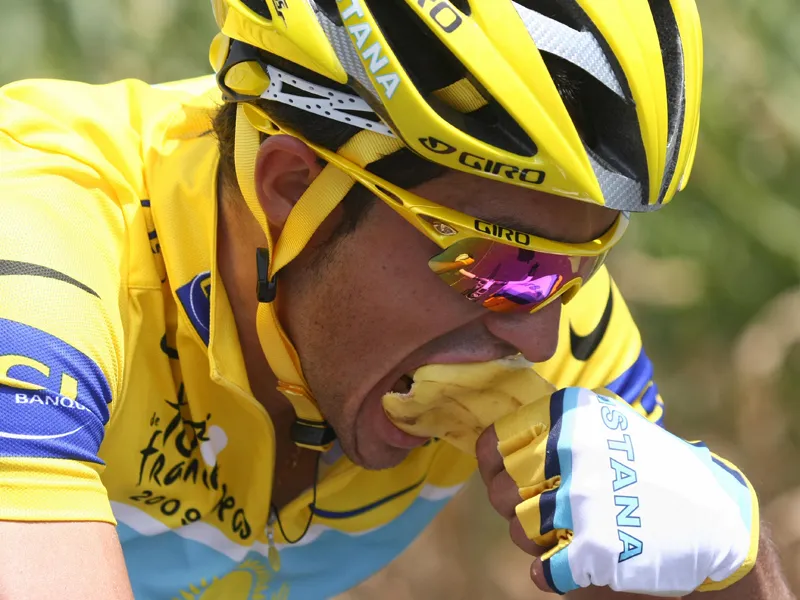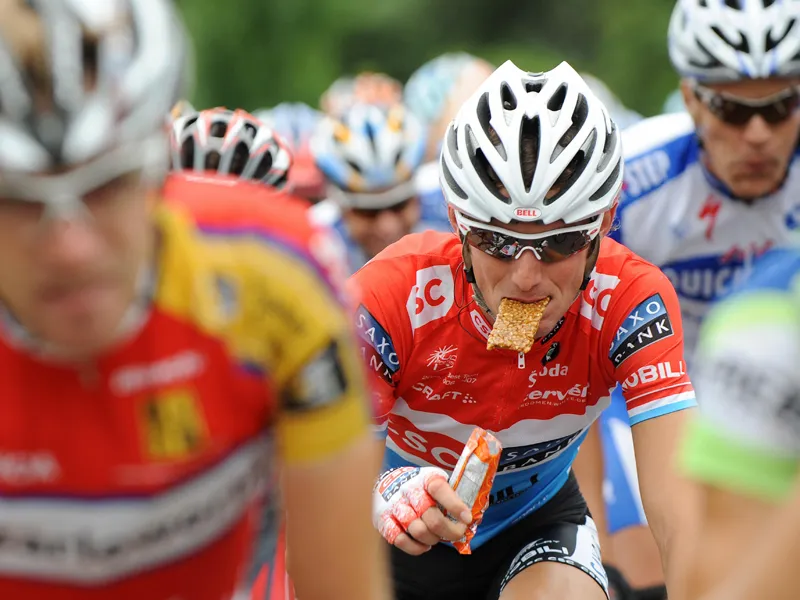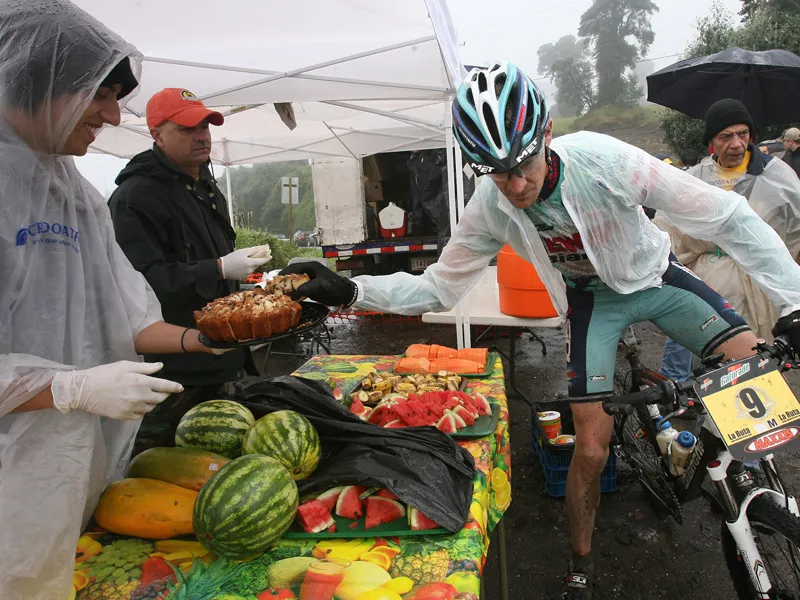Not sure what food will help you ride at your best? Dr Kevin Currell, performance nutritionist at the English Institute of Sport, offers 13 diet tips.
1 Breakfast
Always eat before starting your morning training. Sleeping depletes the liver’s store of glycogen, which is the major store of carbohydrate for blood sugar regulation. When this is reduced, your blood sugar level drops and fatigue sets in, making concentration difficult – particularly disadvantageous if you’re using your training session to learn a new technique. Look for foods high in carbohydrate, low in protein and low in fat and, so you don’t compromise on your sleep, choose foods you can eat on the go such as a jam sandwich or sports bar.
2 Bioflavonoids
Bioflavonoids are naturally occurring chemicals found in foods, which have been shown to protect against heart disease and high blood pressure, and regulate blood sugar levels. However, for already healthy athletes the big benefit may be that they also stimulate the production of mitochondria in the muscle. Mitochondria are the engine rooms of muscle cells, and the more you have, the bigger the engine. Bioflavonoids are found in fruit, veg and salad, so rather than having five portions a day, you’ll need to eat double that.
3 Prawns
Prawns are a fantastic source of protein and omega 3 fatty acids. They’re also an excellent food source of the amino acid beta alanine, which has a number of roles in the body. It’s a fuel for the creation of a dipeptide called carnosine, which is a potent antioxidant and works in the muscle to increase the ability of the body to cope with the acid produced by exercise. Beta alanine can also increase your ventilatory threshold and improve sprint performance.
4 Protein
Protein improves your post-ride recovery – try a yoghurt after a short ride or a milkshake or carbohydrate-and-protein recovery drink after a longer effort. However, don't overdo it – anyone eating a balanced diet and taking in enough calories is already likely to be consuming enough protein. (Cyclists need just 1.2-1.4g of protein per kilo of bodyweight per day.) There's also evidence that too much protein can have an appetite-suppressing effect, which may prevent you eating enough carbohydrate to keep your glycogen levels topped up.
5 Milk
If there is such thing as a superfood it’s got to be milk. It’s an amazing source of protein, contains good carbohydrate and provides a range of vitamins and minerals. When you’re training hard, drink one to two pints a day. This sounds a lot, but you’ll feel the difference when you recover quicker and get through tough training blocks.
6 Green tea
Green tea is an excellent source of antioxidants. Drinking green tea has many health benefits and, most importantly for cycling performance, seems to increase the amount of fat you use as a fuel. Research in mice has revealed that green tea can delay fatigue at a given intensity.
7 Glucose and fructose
Recent research has shown that a mixture of glucose and fructose drinks during exercise can improve performance by eight percent when compared to a glucose drink alone. This is a pretty big improvement in performance. To ensure you’re using the best sports drink available, don’t make your choice based on flavour alone – check the label to make sure it contains a mixture of glucose or maltodextrins and fructose.

8 Caffeine
Caffeine has consistently been shown to improve performance. The most likely mechanism by which it works is by stimulating the central nervous system into working a little harder. Caffeinated gels are readily available – use one during a ride to boost performance. Having around 2-3mg per kilo of body weight one hour before a race will also be beneficial.
9 Fish oils
When we lived in caves and hunted for food, we ate healthy fats omega 3 and omega 6 in a ratio of 2:1. These days it’s around 1:20, the consequences of which are slow recovery and increased fatigue. Taking a fish-oil supplement or eating oily fish three to four times a week can restore our bodies back to how they should be.
10 Nitrates
Nitrates are naturally occurring substances that stimulate the production of nitric oxide, leading to a widening of the muscle capillaries. This allows more blood to flow through the muscles, increasing the supply of oxygen, nutrients and the removal of waste products. This improvement in muscle blood flow may enhance recovery, particularly when training hard. There may also be a direct benefit on performance. High-nitrate foods include beetroot, spinach, celery and rocket.
11 Nuts and seeds
Nuts and seeds are good sources of essential fatty acids. As already mentioned, omega 3 and 6 are essential, but omega 9 fatty acids are also important. They help decrease inflammation and enhance recovery. Look to eat a handful of nuts – such as almonds, peanuts, pecans, pistachios, cashews and hazelnuts – and seeds – such as sesame and pumpkin – each day and you’ll recover quicker.
12 Quinoa
Quinoa is a grain-like crop crown primarily for its edible seeds. It originates from South America and is the traditional food of the indigenous South American population. High in iron, magnesium and fibre, quinoa has excellent nutritional value and contains a balanced set of essential amino acids, making it one of the few vegetables to offer a complete protein source. It’s also a low glycaemic index carbohydrate, so is an excellent choice for those looking to control their body weight.
13 Carbohydrates
There are carbohydrate sensors in the mouth that stimulate the brain into working harder. Using a carbohydrate mouth rinse can decrease a 40km time trial time by over a minute. But possibly the biggest benefit is during training. Consuming sports drinks and gels during hard training can be uncomfortable. Just swilling the gel around your mouth will help you maintain the training intensity.

